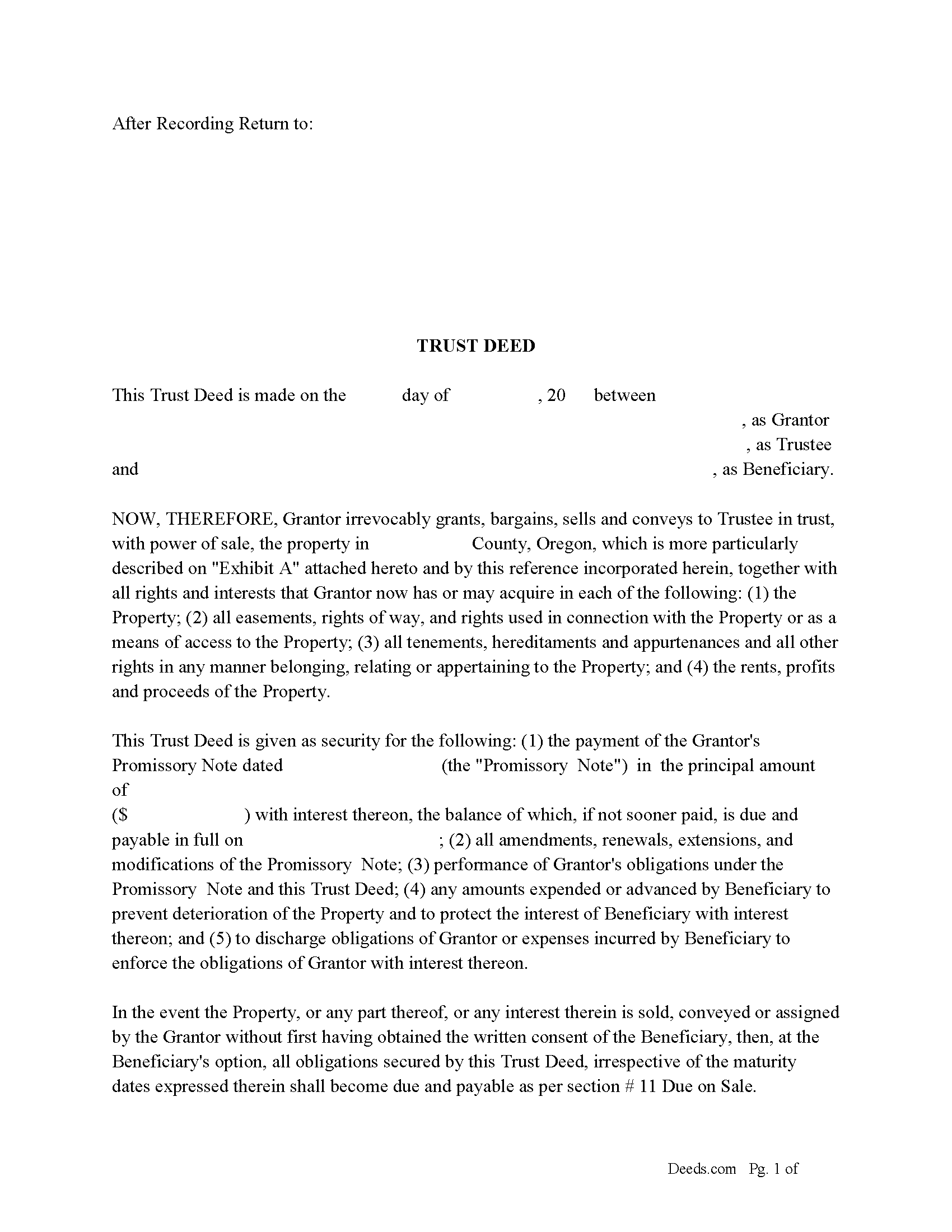Download Oregon Trust Deed and Promissory Note Legal Forms

Oregon Trust Deed and Promissory Note Overview

There are three parties in a Trust Deed in which the Grantor/Borrower (conveys an interest in real property to a trustee in trust to secure the performance of an obligation the grantor or other person named in the deed owes to a beneficiary.) (ORS 86.705(8))
("Grantor" means the person that conveys an interest in real property by a trust deed as security for the performance of an obligation.) ( ORS 86.705(4))
("Beneficiary")/ Lender (means a person named or otherwise designated in a trust deed as the person for whose benefit a trust deed is given, or the person's successor in interest, and who is not the trustee unless the beneficiary is qualified to be a trustee under ORS 86.713) ( ORS 86.705(2))
("Trustee" means a person, other than the beneficiary, to whom a trust deed conveys an interest in real property, or the person's successor in interest, or an employee of the beneficiary, if the employee is qualified to be a trustee under ORS 86.713) ( ORS 86.705(9)) The guidelines provided explain how to easily choose a trustee.
Trust Deeds are considered advantageous for lenders, foreclosure is done non-judicially (saving time and expense), the process is called "Foreclosure by Advertisement and Sale" defined in ORS 86.735. If the Grantor/Borrower defaults the Beneficiary/Lender can choose to have the Trustee foreclose on the Trust Deed.
This Trust Deed and Promissory Note contain strong default terms. Use these forms for residential property, rental property (up to 4 units), vacant land, condominiums, and planned unit developments.
(Oregon TD Package includes forms, guidelines, and completed examples) For use in Oregon only.